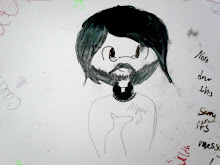The very fact that I am writing this sentence is proof of how difficult the theme of this entry is. Winter has arrived, not spectacularly with thunderings and a deluge, but humbly and slyly. It just showed up one night, fog-bearded and already tired of itself, and decided to stay. It brought us a few presents, too – the flu, the need to buy a space heater (in part a response to the first gift), gray skies, winds blowing out of the south. The sky today makes me think of Seamus Heaney’s comment on the old Icelandic epics – “the poetry of the North Atlantic.” Perhaps the poetry of the South Atlantic, or at least its winter incarnation, is the sense of late May restlessness in the wind, in the way people fidget and pull their jacket in just a little bit tighter at the bus stop in the morning, in the moments spent daydreaming about places with a little more momentary appeal.
Mali has been on my mind a lot. It’s the anti-Montevideo – desert, endless skies, timeless indigenous cultures from the Dogon (who’ve been living on the same cliffs for a thousand years) to the Touareg (desert nomads fighting, often literally, to maintain their lifestyle in the face of modernization and globalization), and a lot of sunshine. Sometimes, when I look out the window, my mind tries to convince me that there are camels just beyond my view, or a hawker waiting to sell me mudcloth or indigo from his family’s village.
In other words, it’s been hard to stay focused for the past week or two. Suddenly, those things I didn’t have to devote that much time to a few months ago – seminary, the Peru trip in July, arranging visits with family, friends, and supporting congregations – have become real issues in need of time and attention. The catch: I have fewer than six weeks before I leave my site to travel to Peru and meet up with the group from TX-LA Gulf Coast Synod. I am running out of time. That sand, that glorious Saharan sand, sent straight from Timbuktu to my daydreams, is passing through the hourglass on its way to my mind. Every day when I go to mark the finished day off my calendar, I’m reminded of just how quickly my year here is coming to an end.
Yesterday, Wilma and I were talking in the church office about this. I remember how slowly the first few months passed. My brain was still desperately trying to recall how to piece together coherent sentences, and then conversations, in Spanish; I didn’t know how to do anything work-wise; I didn’t know anyone, and the language struggle was only making that harder. Time dragged; every day felt like a week. Then, sometime in early November, the ice in my brain thawed and the water began to flow again. Carrying on a conversation in Spanish no longer felt like a torture devised by the Inquisition (perhaps “NOBODY expects the Spanish Inquisition!” is the best tagline for my language struggles of September and October), work frustrations became “this isn’t going to plan” as opposed to “what IS the plan?” and I began to feel surrounded by friends rather than just sympathetic strangers. And, just like a river, the time began to flow – first a trickle, then a slow-moving stream, and then the Amazon, forcing its way on to the sea.
And now, I can practically see the breakers – Texas and my pre-Uruguay life, Chicago, who knows what surprises. I find myself asking myself the question – “what now?” How do I make these last few weeks count?
The answer came to me, as it often has this year, on Wednesday afternoon with the kids. One of the young ones, Federico, has glommed on to me. He always saves the spot next to him on the bench for me, and without fail, always ends up resting up against me within 15 minutes. There are the others, too. We always have a greeting/welcome song at the start of our time with the kids, and between the verses we go around and shake hands, joke around a little bit with the kids, etc. One of the girls, Gretel, has March acted very afraid of me since she joined us in March – I’ll stick out my hand, and she’ll shake her head no and look away. But last week...she shook my hand with a big smile on her face. After the welcome song, we listened to a story that came with a song (a monkey cumbia). We all got up and danced to the song (yes, me too), and everyone, every single kid (and the three adults, and even Milton when he popped in the room to see how things were going), danced like a goofball and belted out the song (and occasional monkey noise) with gusto. Everyone danced together, too – people took turns spinning others and being spinned, we had a conga (erm, cumbia) line at one point.
I guess that’s the answer to my question. When the monkey cumbia is blaring, you dance. When the students show up with English, North American or African Geography, History, Chemistry, Music, or Computer Science/Information and Research Skills homework, you work with them. When the cook is looking bored in the kitchen, you chat and joke around with her. When the big life questions come up in Bible Study, you talk. When the time is running short, you don’t just watch the sand slip away and feel poorly about it. You accept, reluctantly at times, that such is life, and you make the most of what you have, and you save your Dogon Country daydreams for later
Wednesday, May 28, 2008
Subscribe to:
Post Comments (Atom)

No comments:
Post a Comment